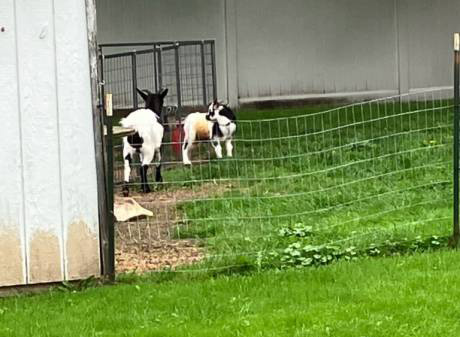
City residents who own the breeds of farm animals listed on the newly adopted ordinance are being given a six-month grace period to find new homes for them, City Manager Rachael Tabelski says.
City Council approved a revised local law Monday evening that prohibits any city resident from owning, possessing or harboring the following farm animals:
- Cloven-hoofed
- Cattle
- Horses
- Sheep
- Goats
- Pigs
- Swine
- Llamas
- Alpacas
- Ducks
- Turkeys
- Geese
- Ponies
- Donkeys, Mules
Exceptions include being allowed to have a maximum of six chickens, as long as they are penned and maintained appropriately, with no accumulated feces, odors or related mess; special events with prior approval of an event application; and animals in transit to or from a veterinary facility or other destination out of city bounds.
“This ordinance shall take effect immediately after the date of passage and in accordance with law,” it states. “Residents with existing animals that are now regulated will have a six-month grace period before enforcement action will be taken.”
Since the city doesn’t have enough staff to physically check out every residence in the city, this ordinance will be enforced based on complaints about alleged offenders.
The resolution initially included feral cats on the list. However, a public hearing about the law brought out about 15 people to speak about that inclusion. Council members agreed to table a prior vote to further discuss the cat situation. The group later removed feral cats from the list.
“So yes, it does not restrict feral cats in any way,” Tabelski said Tuesday. “The folks who came in to discuss feral cats were extremely informative. And I was glad to hear that they're still out there working in our community, and have plans to address any type of cat colonies and cat communities.”
During the meeting, advocate Todd Vaarwerk spoke on behalf of Independent Living of the Genesee Region and those with service animals. He noted that the resolution had not changed other than excluding cats, and was concerned that ADA rights were going to be violated.
“I implore you one last time to fix this error,” he said.
Anyone with a certified service animal who is protected by federal Americans with Disabilities Act stipulations will not be affected by the local law, City Attorney George Van Nest said during the meeting.
If someone complains about a neighbor, and that person has a documented service animal, the city’s code enforcement staff will verify it before issuing any penalty.
“We will be relying on any type of complaints to look and see if there is a violation and go from there,” Tabelski said. “There's other federal laws that supersede our ordinance, such as the ability of residents to have support animals, and we'll certainly understand and take that into consideration upon responding to any type of complaints.”
To read the resolution, go HERE.
Photo submitted of goats in the city that were part of a neighborhood's complaints to City Councilman John Canale, who brought the issue to council earlier this year.
